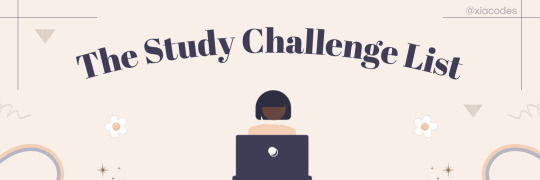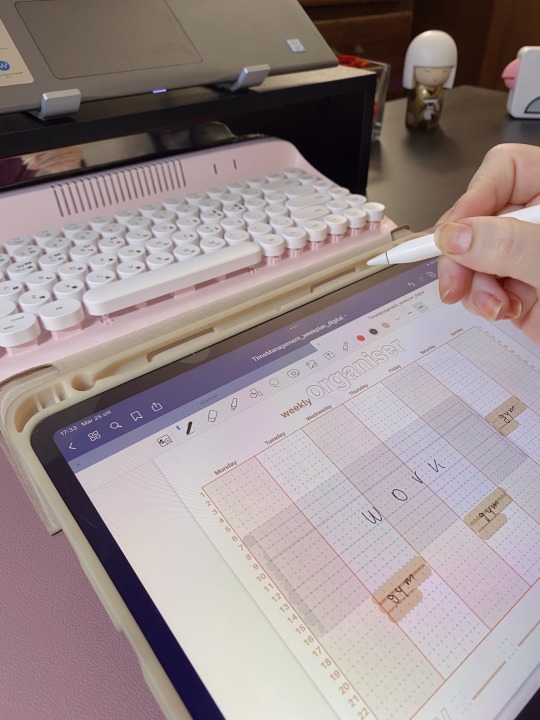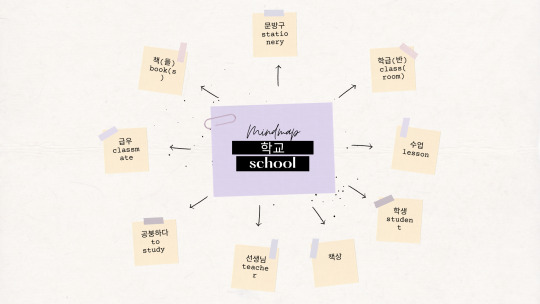#prepolyglot
Explore tagged Tumblr posts
Text
Konjunktiv in German
This is part of the Langblr reactivation challenge! This is day 9 :)
Write an explanation on a grammar rule in your target language (such as verb tenses, exceptions, word order, etc). Include sentences to show how and when it is used.
Sooo Konjunktiv, we finally meet.
Aka this is the Konjunktiv post that nobody asked me to write and yet I did. This is the English version, but you can also find the German version here (I can't promise that it will be more understandable tho) :)
Konjunktiv I is used for indirect speech. There are also some fixed situations in which one always uses Konjunktiv I. The main verb is only conjugated in the present tense; the auxiliary verbs are conjugated for the other tenses.
The verb sein is regular in Konjunktiv I: ich sei, du seiest, er sei, wir seien, ihr seiet, sie seien.
The rest of verbs are conjugated with the following pattern:
The third person singular is the most used, because it's the most frequent form in indirect speech. In order to conjugate it, one must remove the -n from the infinitive form: haben - er habe.
The modal verbs are also regular in the 1st and 3rd person singular: ich/er/sie/es müsse.
2nd person singular and plural are different from the indicative only by an -e: du gehst - du gehest/ihr geht - ihr gehet.
The 1st person singular and 1st and 3rd persons plural are the same as the indicative, so one must use the Konjunktiv II for situations when these persons are needed.
One can build sentences in the past, present and future with Konjunktiv I :
Simultaneity. The main and subordinate clauses occur at the same time: er sagt, sie lese ein Buch.
Anteriority. The subordinate occurs before the main clause: er sagt, sie habe ein Buch gelesen.
Posteriority - Futur I and II. The subordinate occurs in the future of the main clause: er sagt, sie werde ein Buch lesen/er sagt, sie werde ein Buch gelesen haben.
To speak about things that are impossible or unlikely, we use Konjunktiv II, but also for indirect speech and other situations:
Wishes and hopes.
Unreal statements or conditional sentences.
As previously explained, indirect speech (when Konkunktiv I isn't possible)
Particularly polite or careful requests or statements
There is one pure form of Konjunktiv II, for the present, and several forms with auxiliary verbs.
For the present, only strong verbs are conjugated in Konjunktiv II, because the subjunctive form in weak verbs is the same as indicative Präteritum. In order to conjugate strong verbs in Konjunktiv II, one must add the subjunctive endings (-e, -est, -e, -en, -et, -en) to the Präteritum root. Additionally, the verbs that have an a/o/u receive an Umlaut:
ich fände, du fändest, er fände, wir fänden, ihr fändet, sie fänden.
The modal and auxiliary verbs are also conjugated in Präteritum in Konjunktiv II:
ich wäre/ich hätte/ich würde/ich könnte/ich dürfte/ich müsste/ich sollte/ich wollte...
But many people already know these forms! They are the ones used for polite requests: ich hätte gerne...
The other tenses are conjugated with auxiliary verbs:
For situations in the future, but also for those in the present, one can use würden + infinitive. This is also the only form can be used for the present in weak verbs: ich würde warten.
Plusquamperfekt is constructed with haben or sein in Konjunktiv II + the participle of the verb. It's the past tense: ich hätte gefunden/ich wäre gegangen.
There is a second future form, Futur II, which is built with würde + participle + haben/sein: ich würde geträumt haben.
Thank you very very much to @dreamofghosts for the corrections and help in making sense of this....... interesting topic lol!!
#langblr reactivation challenge#prepolyglot#konjunktiv#langblr#german#corrections are welcome!#la galaxie langblr#brightstudyblr#fluencylevelfrench#myhoneststudyblr#benniscup#heyzainab#noctis-studies#akastudies#mine
155 notes
·
View notes
Text
Langblr (Re-)introduction
Hello! I've been lurking around these langblr parts for a few years now, and did post some stuff ages ago, but thought it was about time I became a bit more involved in the language learning community here.
I'm going to try and follow prepolyglot's langblr reactivation challenge over the next couple of weeks to give me a structure to use to get back to posting regularly, but for now here are some facts about me to act as a new intro...
My name is Alice
I'm 28 years old
I live and work in the UK as a data scientist
I love languages because I like the window they give me onto other cultures. They help me understand diverse perspectives on things and put my own values and ingrained beliefs in context... It's interesting to realise how some things that I take for granted as facts are actually totally arbitrary ideas that I wouldn't have if I'd grown up in a different situation.
I'm actively studying German to try and reach a level where I can more easily learn via input (for me this usually means watching youtube or TV). My current level is probably around A2 so I have a little way to go but hoping to be there some time around this Summer.
I'm also actively studying Spanish and taking a C1 class with Instituto Cervantes. My aim with this is to polish it up and gain more confidence with output.
I'm trying to maintain my French and Italian, both of these are at an intermediate-ish level.
That's probably it for now, but please interact with this post if you post langblr content or anything related to the languages above so I can follow you! I'm super interested in different language learning methods and theories too so would love to get more of that stuff on my dash.
8 notes
·
View notes
Text
Langblr Reactivation Challenge
Day 2
Challenge by @prepolyglot
My short term goals with Russian right now are just to absorb and remember more vocabulary. I'm at a point where with most words I've learned if I see or hear them I can understand them, but if I need to write something my mind goes completely blank. It took me forever to get past that with Danish and I think Russian is especially hard because of the Cyrillic alphabet for me. I can read it but I can't picture the right letter to use sometimes when I'm writing too, which sucks! I didn't have this problem with Japanese so idk what happened to me.
For long term goals, I want to work on pronunciation and speaking it without sounding like a complete idiot lol
Right now I have trouble remembering which letters are stressed in words and since it changes the pronunciation I kind of need to figure that out.
#slavic languages#russian#langblr#prepolyglot#langblr reactivation challenge#russian language#russian langblr
11 notes
·
View notes
Text
I was tagged by @prepolyglot
RULES: tag 20 of your followers who you want to know better! Nickname: E.V., Eevie, Eeves, Hey you, Eevielyn, etc Gender: female Astrological sign: corn nuts Height: middle Sexuality: gray-pan Harry Potter house: Ravenclaw, binches Blanket count: one?? (it’s summer, my dudes) Origin: spooky Dream vacation: Scotland Blog birthday: January 2018 Blog purpose: to help me study French, and then to help other people as well
I’m tagging: fuck it, anyone who wants to!
2 notes
·
View notes
Note
Bonjour! J'aime tes posts pour le langblr reactivation challenge (et en général). Continue à faire du bon travail, j'ai hâte pour ton prochain post même si je ne comprend pas Ia langue.
Bonjour 😊 Quelle belle chose à dire ! Merci beaucoup ! Et merci d'avoir créé le challenge, j'ai vraiment aimé participer.
1 note
·
View note
Text

Studying can be a daunting task, especially when we're not feeling motivated or don't know where to start. Luckily you are on Tumblr, where the Tumblr Studyblr community lives!
A group of individuals who share their study tips, techniques, and challenges to help motivate and inspire others.
As a member of this community, I've compiled a master post of study challenges created by Studyblr bloggers. These challenges aim to help students stay on track, improve their focus, and achieve their academic goals. So you can join in and start achieving your academic potential!
>> 𝐍 𝐨 𝐭 𝐞
If you know any other challenges or you've created ones yourself and want to share them, do message me with the link to the post so I can update the list! I too will be creating some, more coding-related ones as I am a coding studyblr (codeblr) blog! That's all and hope you find a challenge you'd like to start!

@tranquilstudy's Studyblr Challenge - 𝒍 𝒊 𝒏 𝒌
@sub-at-omic-studies' Study Challenge - 𝒍 𝒊 𝒏 𝒌
@wecandoit’s Study Challenege - 𝒍 𝒊 𝒏 𝒌
@cheereader's The “Back To College” Study Challenge - 𝒍 𝒊 𝒏 𝒌
@myhoneststudyblr's The Studyblr Community Challenge - 𝒍 𝒊 𝒏 𝒌
@ddaengstudies' Wabi-Sabi Studyblr Challenge - 𝒍 𝒊 𝒏 𝒌
@hayley-studies' 30-Day Study Challenge - 𝒍 𝒊 𝒏 𝒌
@ddaengstudies' Zoomester Studyblr Challenge - 𝒍 𝒊 𝒏 𝒌

@cheereader's Summer Studying Challenge: Southern Hemisphere Edition - 𝒍 𝒊 𝒏 𝒌
@cheereader's Horrortober Challenge - 𝒍 𝒊 𝒏 𝒌
@caramelcuppaccino's Autumn Studying Challenge - 𝒍 𝒊 𝒏 𝒌
@myhoneststudyblr's Winter Studying Challenge - 𝒍 𝒊 𝒏 𝒌
@ddaengstudies' Winter Wonderland Studyblr Challenge - 𝒍 𝒊 𝒏 𝒌
@cheereader's South Hemisphere Autumn Challenge: 2023 Edition - 𝒍 𝒊 𝒏 𝒌

@stu-dna's January Study Challenge - 𝒍 𝒊 𝒏 𝒌
@planningforpatience's February Study Love Challenge - 𝒍 𝒊 𝒏 𝒌
@littlestudyblrblog’s March Study Challenge - 𝒍 𝒊 𝒏 𝒌
@wilstudies's April Studyblr Challenge - 𝒍 𝒊 𝒏 𝒌
@smallstudyblrsunite's The June Challenge - 𝒍 𝒊 𝒏 𝒌
@stu-dna’s October Study Challenge - 𝒍 𝒊 𝒏 𝒌

@alfalfaaarya’s 21-Day Productivity Challenge - 𝒍 𝒊 𝒏 𝒌
@work-before-glory's G's Productivity Challenge - 𝒍 𝒊 𝒏 𝒌

@moltre-se-s' 30 Day Langblr Challenge - 𝒍 𝒊 𝒏 𝒌
@drunkbloodyqueen’s The language challenge - 𝒍 𝒊 𝒏 𝒌
@caramelcuppaccino's 20 Language Learning Challenge - 𝒍 𝒊 𝒏 𝒌
@prepolygot’s Langblr Reactivation Challenge - 𝒍 𝒊 𝒏 𝒌
@onigiriforears's Target Language Reading Challenge - 𝒍 𝒊 𝒏 𝒌
@prepolyglot's Langblr Reactivation Challenge - 𝒍 𝒊 𝒏 𝒌

@xiacodes' 5in5weeks Coding Challenge - 𝒍 𝒊 𝒏 𝒌
@xiacodes' FreeCodeCamp Study Challenge - 𝒍 𝒊 𝒏 𝒌

@friend-crow's Tarot Study Challenge - 𝒍 𝒊 𝒏 𝒌
@dreamdolldiary's 100 Days Reinvention Challenge - 𝒍 𝒊 𝒏 𝒌

#studyblr community#studyblr#study challenge#studyblr challenge#study plan#study#study tips#student#productivity#productive#codeblr#study hard#langblr#studying#study space#study blog#study motivation#study aesthetic#study advice
1K notes
·
View notes
Text
Masterlist Langblr challenges
Following from my previous posts, if you do feel like working on your languages, but don't know where to start; here are some langblr challenge you might like!
Language Blog Challenge: 20 weeks of challenges | by @lily-learns-finnish
Langblr Reactivation challenge | by @prepolyglot
14 Day langblr challenge | by @lass-uns-studieren
Langblr News challenge | by @tealingual
90-day vocab challenge | by @jibunstudies
100 Happy Days Langblr Challenge | by @nordic-language-love
Mini speaking challenge | by @nordic-language-love
16 words challenge | by @neblina-a-blin
30 day langblr challenge | @moltre-s
Brick-by-brick language learning challenge | by @linguistness
Langblr word of the day challenge | by @nordic-language-love
Target Language Reading challenge | by @onigiriforears
P.S. Please let me know if you know some more fun langblr challenges!
#language learning#swedish langblr#swedish#langblog#langblr#languages#swedish language#language resources#langblr challenge#language learning challenge
568 notes
·
View notes
Text
112322 | Week 1 Day 4 of Langblr Reactivation Challenge by @prepolyglot


Day 4: Create a vocab list for one of the topics you created yesterday, if you want to make more, feel free to make as many as you like! Share your list and reblog other people’s lists. And most importantly, make sure you study these words!
Chinese/Japanese/German/English
蔬菜 - shū cài / 野菜 - やさい / Gemüse / Vegetables
西红柿 - Xīhóngshì / トマト / Tomate / Tomato
洋葱- Yángcōng / タマネギ /Zwiebel / Onion
姜 - Jiāng / ショウガ / Ingwer / Ginger
土豆 - Tǔdòu / じゃがいも / Kartoffel / Potato
蘑菇 - Mógu /キノコ / Pilz / Mushroom
黄瓜 - Huángguā /キュウリ / Gurke / Cucumber
蒜 - Suàn /ニンニク / Knoblauch / Garlic
肉 - Ròu / 肉 - にく/ Fleisch / Meats
猪肉 - Zhū ròu / 豚肉 - ぶたにく/ Schweinefleisch / Pork
牛肉 -Niú ròu / 牛肉- ぎゅうにく / Rindfleisch / Beef
鱼 -Yú /魚- さかな / Fische / Fish
鸡肉 - Jī ròu /鶏肉 - ときにく/ Huhn / Chicken
香肠 - Xiāngcháng /ソーセージ / Würstchen / Sausage
虾 - Xiā / エビ / Garnele / Shrimp
蟹 - Xiè / カニ / Krabbe /
水果 - Shuǐguǒ /果物 - くだもの / Obst / Fruits
苹果 - Píngguǒ / リンゴ / Apfel / Apple
橙 - Chéng / オレンジ/ die Orange / Orange
梨 - Lí / 梨 - なし / die Birne / Pear
西瓜 - Xīguā / スイカ / die Wassermelone / Watermelon
柠檬 - Níngméng / レモン / die Zitrone /Lemon
葡萄 - Pútáo / 葡萄 - ぶどう/ die Trauben Grapes
日用品 - rì yònɡ pǐn / 日用品 にちようひん / Die täglichen Erfordernisse / Daily Necessities
香皂 - xiānɡ zào / 石鹸 - せっけん / die Seife / Soap
毛巾 - máo jīn / タオル / das Handtuch * Towel
洗洁精 - / 食器用洗剤 しょっきようせんざい / Geschirrspülmittel / Dish washing liquid
卫生纸 - wèi shēnɡ zhǐ /トイレットペーパー / Toilettenpapier / Toilet paper
牙刷 - Yáshuā / 歯ブラシ / Thootbrush
#german#german vocabulary#langblr reactivation challenge#langblr challenge#langblr#japanese langblr#日本語の勉強#language learning#日本語勉強#日本語#polyglot#language#studyblr
77 notes
·
View notes
Text


251022 | Day 1 of Langblr Reactivation Challenge by @prepolyglot 🔥
Starting this challenge as well, but will catch up with 2 tasks per day later, definitely not today as it’s already 10.30 pm 🥲
So, once again, my name is Michelle and I have been studying languages since I have memory basically, here’s the languages I study / speak (no particular fluency order): 🇮🇹 🇺🇸 🇪🇸 🇫🇷 🇯🇵 🇩🇪 🇰🇷
Languages I hope to study: 🇧🇷 🇨🇳 for sure, maybe in the future 🇳🇴 or 🇸🇪
My hopes for this challenge: meet new inspiring language lovers and get to know new and innovative approaches, especially for a worker like me 🥲
Feel free to ask me anything lang learning related 💞
41 notes
·
View notes
Text
langblr reactivation | 2022-11-19
week 1, day 3: mapping vocabulary topics

after some reflection, here are subjects in which i'd like to expand my vocabulary. i've used this tool, recommended by @prepolyglot
edit: i'd love to learn more abstract and poetic words!
#langblr#languages#studyblr community#studies#language learning#langblr reactivation challenge#100 days of productivity#student#polyglot#studyblr#emmastudies
17 notes
·
View notes
Text
Langblr reactivation challenge #1


Create an introduction post about yourself. What's your name? What languages are you studying? What languages do you hope to study? What do you hope you'll get out of this challenge?
Hallo zusammen! Ich bin Al, aus Spanien, und lerne gerne seit Jahre Deutsch: ich habe ein Jahr in der Schule Deutsch gelernt, dann habe ich vier Jahre lang nur selbstgelernt, später bin ich nach Deutschland umgezogen... aber jetzt bin ich wieder in Spanien und möchte es nicht verlieren, deshalb nehme ich sehr gerne an dieser Challenge teil :) Im Moment promoviere ich in Biochemie und studiere die letzten zwei Semester English Studies, deswegen habe ich leider keine Zeit, um mich für einen Sprachkurs anzumelden. Neben Deutsch sollte ich vielleicht auch mit Französisch anfangen, da ich die Möglichkeit hätte, für eine kurze Zeit in ein französisches Labor zu gehen...
Hi everyone! This is Al, from Spain, and I've been learning German for quite a few years now: I took one year in high school, then did some self-studying for four years, and later I moved to Germany! But now I'm back in Spain and I don't want to lose all those improvements. That's why I'm so excited to take part in this challenge :) right now I'm doing my PhD in biochemistry and I'm also studying the last year of English studies, so I sadly don't have time to sign up for a language course. Besides German, I might have to start (re)learning french, because I just got the opportunity to go to a french lab for a short time...
#langblr reactivation challenge#prepolyglot#mine#german#corrections are welcome!#la galaxie langblr#brightstudyblr#fluencylevelfrench#myhoneststudyblr#benniscup#heyzainab#noctis-studies#akastudies#tw big rat#i guess lol#also if you want me to tag you just lmk!
58 notes
·
View notes
Text
Fav Langblrs
Week 2, day 7 of prepolyglot’s langblr reactivation challenge
linguistness - lots of cool langblr but also linguistics content (German, Swedish, French, Czech)
cumbiana - phd life with some Spanish and langblr content thrown in
spanishskulduggery - really helpful explanations about Spanish grammar and vocab
thetudes - lots of useful resources for French
3oey - cute vocab drawings for Russian :3
tealingual - tonnes of resources for tonnes of different languages, great for resource masterposts
sciogli-lingua - several languages but especially Italian
pompadourpink - the ultimate authority on the French language as far as I'm concerned forget L'Académie Française
linguenuvolose - language study and general life posts, just a nice vibe
fluencylevelfrench - French and also book recs
#langblr reactivation challenge#community#langblr#linguistness#cumbiana#spanishskulduggery#thetudes#3oey#tealingual#sciogli-lingua#pompadourpink#linguenuvolose#fluencylevelfrench
106 notes
·
View notes
Text
Langblr Reactivation Challenge by @prepolyglot | week 1, day 3-4
Doing (trying) this in Korean first.

문방구 = stationery
책 = book 공책, 노트 = notebook 펜 = pen 연필 = pencil 표시 = marker 필통 = pencil case 지우개 = eraser 가위 = scissors 종지 = paper 통치자 = ruler
*책상 = desk
----
French: not doing the actual mindmap cause I'm lazy but l'ècole les fornitures de bureau la (salle de) classe la leçon l'élève, étudiant/e le pupitre, le bureau le/la professeur/e, einsegnant/e étudier le/la camarde de classe le/les livre/livres
le cahier la stylo le crayon le feutre la trousse la gomme les ciseaux le papier la règle
#languages#langblr reactivation challenge#this is so uncomfortable#but okay#hope i remember the french articles right tbh
18 notes
·
View notes
Text
I was tagged by @prepolyglot
Rules: we’re snooping on your playlist. Put your entire music gallery on shuffle & list the first 10 songs then choose 10 people.
1. Vicious by Keith Stanfield
2. Loveless Motel by Jill Sobule
3. Believe by The Bravery
4. Toothpaste Kisses by The Maccabees
5. A Forgotten Spot (Olvidado) by Lin-Manuel Miranda
6. Little Sounds of Pain by Isobel Anderson
7. Burn from Hamilton
8. Henry Nearly Killed Me (It’s a Shame) by Ray LaMontagne
9. Move on Up by Curtis Mayfield
10. Don’t Stop (Color on the Walls) by Foster the People
I’m tagging: anyone who wants to do this! Seriously, go for it. :)
2 notes
·
View notes
Text
Langblr Reactivation Challenge (1.1)
Hello! I've decided to take part in this wonderful challenge compiled by @prepolyglot because it has all the structure my brain craves, and I want to try and use it to motivate myself back into consistent language study.
About Me:
My name is Lucy and my pronouns are she/her
I'm British, but currently living in Spain on my year abroad
I'm a modern languages and history student at university
Languages I'm Learning:
Spanish - I study Spanish as part of my degree, and although I have a DELE certificate to say I'm C1, I think my skills have slipped a little and I'm closer to a high B2.
German - also part of my degree, but started from beginners in my first year. I'd say I'm B1/ tentative B2, my comprehension is very good, but my production is poor. I'm looking forward to being able to improve my German during the second half of my year abroad.
Italian - my favourite language, and one I've always wanted to learn. I'm currently self-studying, but I find it difficult to keep motivated. I'm around A2 level, but maybe a B1 in comprehension. (Speaking Spanish really helps me here!)
Swedish - this July I took part in an exchange programme with my university and studied in Sweden for a month. My course was on Swedish language and culture and I loved it! I'm only A1 level but would like to keep learning.
French - this semester, I am taking French classes (taught in Spanish) whilst on my year abroad. I've only had two weeks so far but it's super fun, and I've always wanted to pick French up again after learning it in high-school.
Arabic - I am also taking a course in Arabic which is taught in German. This will be a massive challenge for me, but I'm hoping it will help reinforce my German too!
Languages I'd Like To Learn:
Catalan
Dutch
I personally really struggled with picking a language and sticking to it, hence the massive number of languages on my learning list. I'm hoping that taking classes in 4/6 of them will help me focus this year. I'm hoping this challenge will help motivate me and maybe connect with other language learners too!
12 notes
·
View notes
Text
Week 3 | Day 7 | Langblr Reactivation Challenge
🇫🇮 FI: Vikan päivän ohjeistuksessa luki, että kirjoita äidinkielellä tai tavoitekielellä, joten ajattelin, että kirjoitankin tällä kertaa äidinkielellä eli suomeksi. Energiat vähän laski haasteen loppua kohden ja netin ulkopuolinen elämä painoi päälle, joten useampi päivä jäi multa välistä ja kirjoitan tätä viimeisen päivän postausta nyt paljon myöhemmin kuin oli tarkoitus. Halusin kuitenkin joka tapauksessa vetää vähän ajatuksia kokoon nyt lopuksi. Fiilis on hyvä, ja oon iloinen, että ehdin tekemään sen verran postauksia mitä ehdin. Parasta haasteessa oli ehdottomasti se, että löysin monia mulle täysin uusia langblr-tilejä haasteen tägin kautta. Sain myös lisää kipinää kielten opiskeluun ja motivaatio nousi, koska sain opiskeluun tavoitteellisuutta tän haasteen kautta (opiskelen tällä hetkellä kaikkia mun tavoitekieliä itsenäisesti, joten opiskelun tavoitteellistaminen on ajoittain hyvinkin haastavaa...). Sain myös paljon ajatuksia ja intoa jatkoa ajatellen, esim. millaisia langblr-postauksia haluan tästä eteenpäin tehdä. Kiitos @prepolyglot haasteen ideoinnista! 😊
🇬🇧 EN: The prompts for the last day of this challenge instructed us to write either in our native language or our target language, so I decided to write in my native language (Finnish) for once. My energy levels definitely decreased towards the end of the challenge as real-life stuff complicated things, so I ended up skipping several days and I’m writing this last post way later than I intended to. In any case, I still wanted to sum up my thoughts at the end of the challenge. I feel great, and I’m really happy that I had time to create the posts that I did. The best thing about this challenge was definitely the fact that I found so many new-to-me langblr accounts through the tag for the challenge. The challenge also sparked new motivation in me for learning languages, because I found studying more intentional with an objective in sight (I’m currently studying all of my target languages independently, so I often lose sight of my goals and objectives...). Also, I now have many ideas and a lot of excitement for what I’m planning to do next, e.g. what types of langblr posts I want to continue with moving forwards. Thank you @prepolyglot for coming up with this challenge! 😊
11 notes
·
View notes